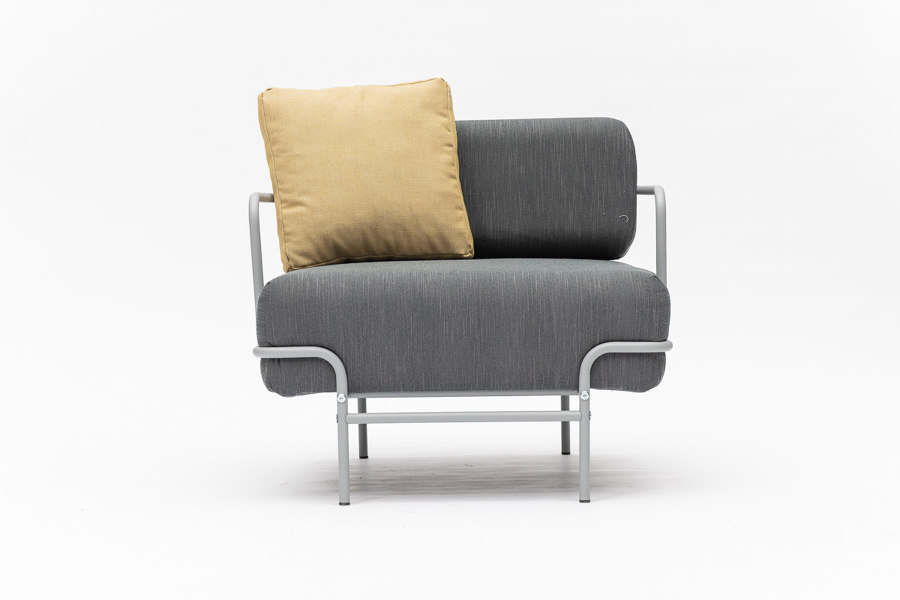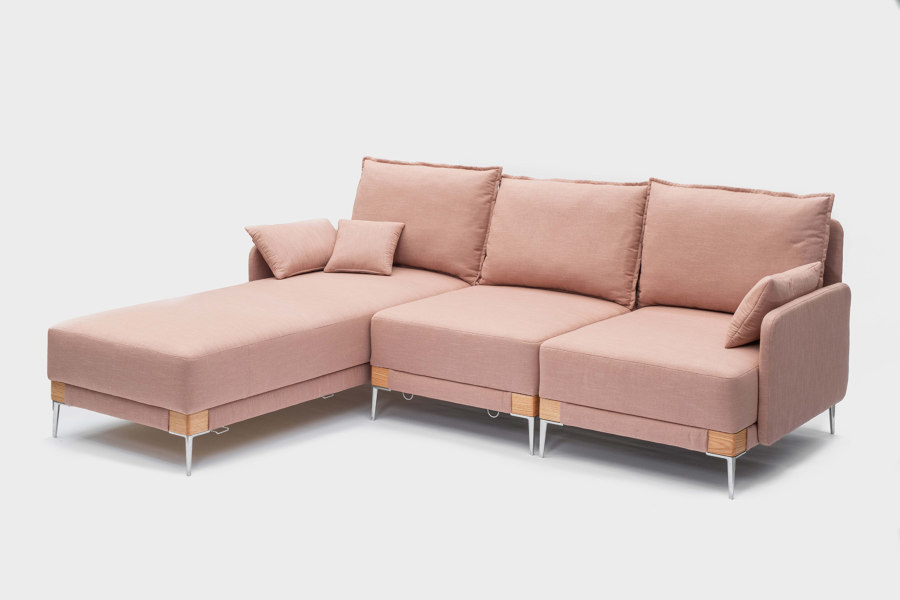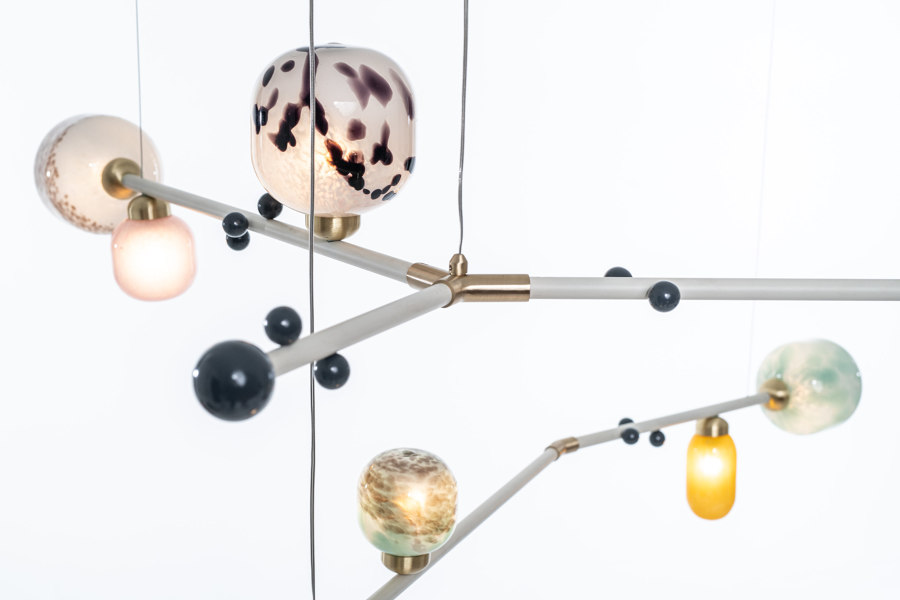HFDA’s design LAB promotes the best in Hungarian design
Brand story by Dominic Lutyens
London, Royaume-Uni
09.09.21
In collaboration with the established French design institute VIA, the Hungarian Fashion & Design Agency is seeking to put Hungarian design on the world map.
Designer Sára Kele’s flexible Tangens collection, manufactured by Rotte – winner of the ‘Red Dot: Best of the Best’ award
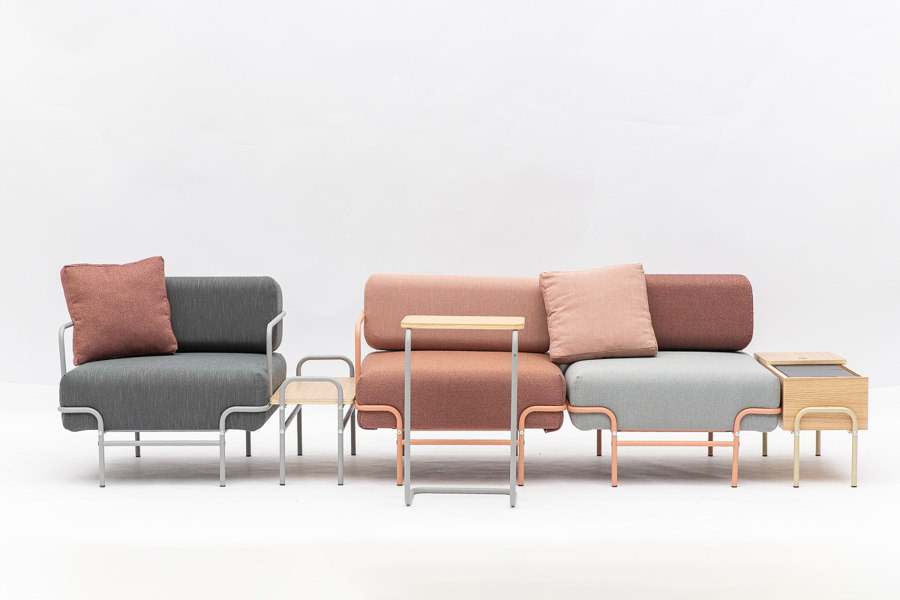
Designer Sára Kele’s flexible Tangens collection, manufactured by Rotte – winner of the ‘Red Dot: Best of the Best’ award
×A perennially popular attraction at international design fairs are stands displaying work by talented designers from a country or region which may have had little exposure beyond its borders. Reflecting local culture through manufacturing methods, materials used and its aesthetic – and presenting a refreshing alternative to globalisation – it’s often fresh and original, and appeals to interior designers and architects seeking unusual pieces.
Digital communication has played a vital role during the pandemic, but the value of actual fairs has become more obvious in a post-Covid world: they allow interior designers to assess the quality or aesthetic impact of new products, first hand.
Exhibitors benefit from this, too, as Hungarian Fashion & Design Agency (HFDA) is only too aware. Its recently launched initiative, an incubation programme called design LAB, seeks to put the cream of Hungarian designers and manufacturers on the world map. The first step in its strategy is a collaboration with long-established French design institute, Valorisation de l’Innovation dans l’Ameublement (VIA), which promotes French design and exhibits it at its Paris gallery.
A detail of the jewel-like Berri lighting family designed by POSITION Collective and made by Úri Lux
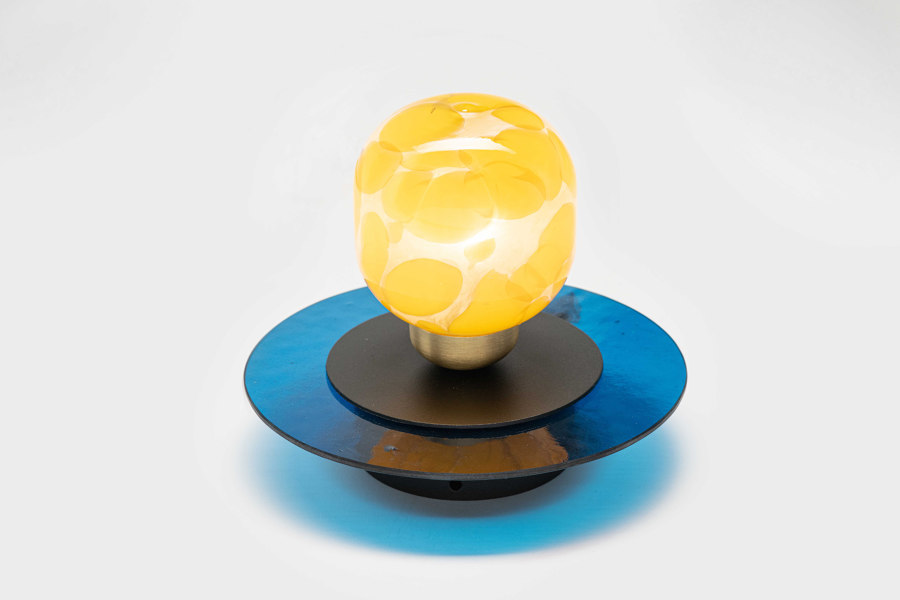
A detail of the jewel-like Berri lighting family designed by POSITION Collective and made by Úri Lux
×VIA also organises ‘Speed-dating events’ where designers meet manufacturers with the aim of sparking collaborations. Inspired by VIA, HFDA kickstarted its design LAB programme by holding its own Speed-dating Event (held digitally last year due to the pandemic). This resulted in pairing up seven Hungarian designers and manufacturers, who were given six months to dream up a finished product. This yielded 43 designs suitable for mass-production, and HFDA is committed to supporting the production of seven of these. ‘We are extremely proud that over 40 unique, innovative creations are ready to stand their ground at any exhibition worldwide,’ says Zsófia Bata-Jakab, CEO of HFDA.
HFDA’s recently launched initiative, an incubation programme called design LAB, seeks to put the cream of Hungarian designers and manufacturers on the world map
VIA is showcasing all seven products at its gallery on Avenue Ledru-Rollin during Paris Design Week (September 9-18). Five designs will also be presented at Paris fair Maison & Objet (September 9-13).
Key characteristics of the design LAB products are their versatility and sustainability – and they are winning acclaim for their excellence. Designer Sára Kele’s Tangens furniture family of 15 pieces, manufactured by Rotte, has just won a ‘Red Dot: Best of the Best’ award for highest design quality. For HFDA, the news of this prestigious accolade truly validates the aims of design LAB.
Top: a modular element from Tangens. Above: a chest of drawers from the Loop collection, designed by Máté Horváth of Forms Design and manufactured by Árkossy Búto
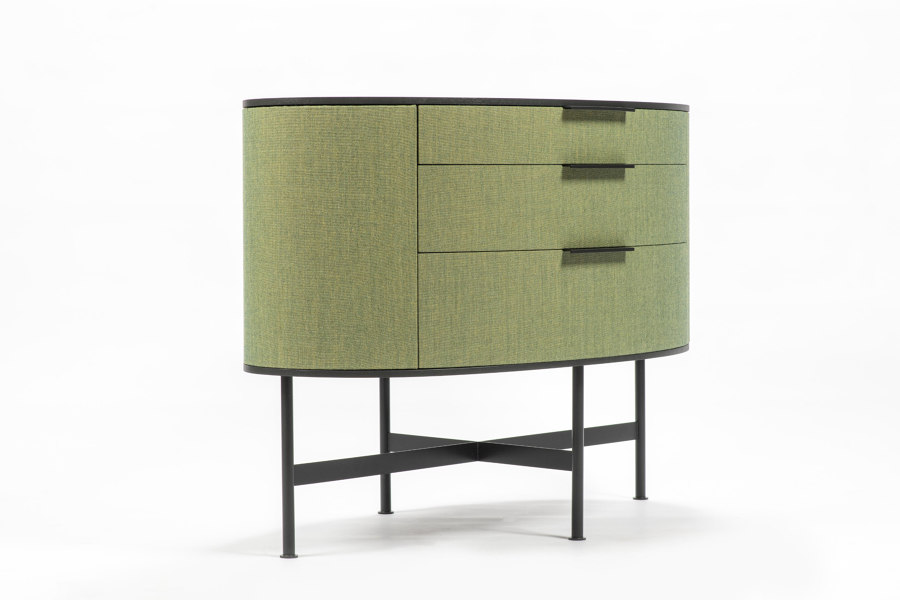
Top: a modular element from Tangens. Above: a chest of drawers from the Loop collection, designed by Máté Horváth of Forms Design and manufactured by Árkossy Búto
×Kele always takes an object’s impact on its environment into account when designing. A lengthy period of research into materials to use for Tangens led Kele to find a fabric that’s of good quality, pleasing to touch and sustainable. Tangens is designed for home offices – hence its domestic look. It is a lightweight, modular collection that can be easily rearranged, adding to its informality. Its tubular metal frames recall the aesthetic of German design school the Bauhaus – a nod perhaps to its Hungarian ties. Hungarian artist László Moholy-Nagy was a professor there.
‘We are extremely proud that over 40 unique, innovative creations are ready to stand their ground at any exhibition worldwide’
Similarly flexible is the Loop family – 12 pieces of fashionably curvilinear furniture, including chests of drawers and sideboards in appealingly moody tones, from maroon to forest green, designed by Máté Horváth of Forms Design and manufactured by Árkossy Bútor. These function as modular elements that can be configured in different ways and are partially made of recycled materials.
Top: The sustainable, modular Match sofa by Máté Horváth made by Varkoly Fiai. Above: The stackable, pared-down Tile chair designed by Dániel Lakos of Planbureau and manufactured by Balaton Bútor
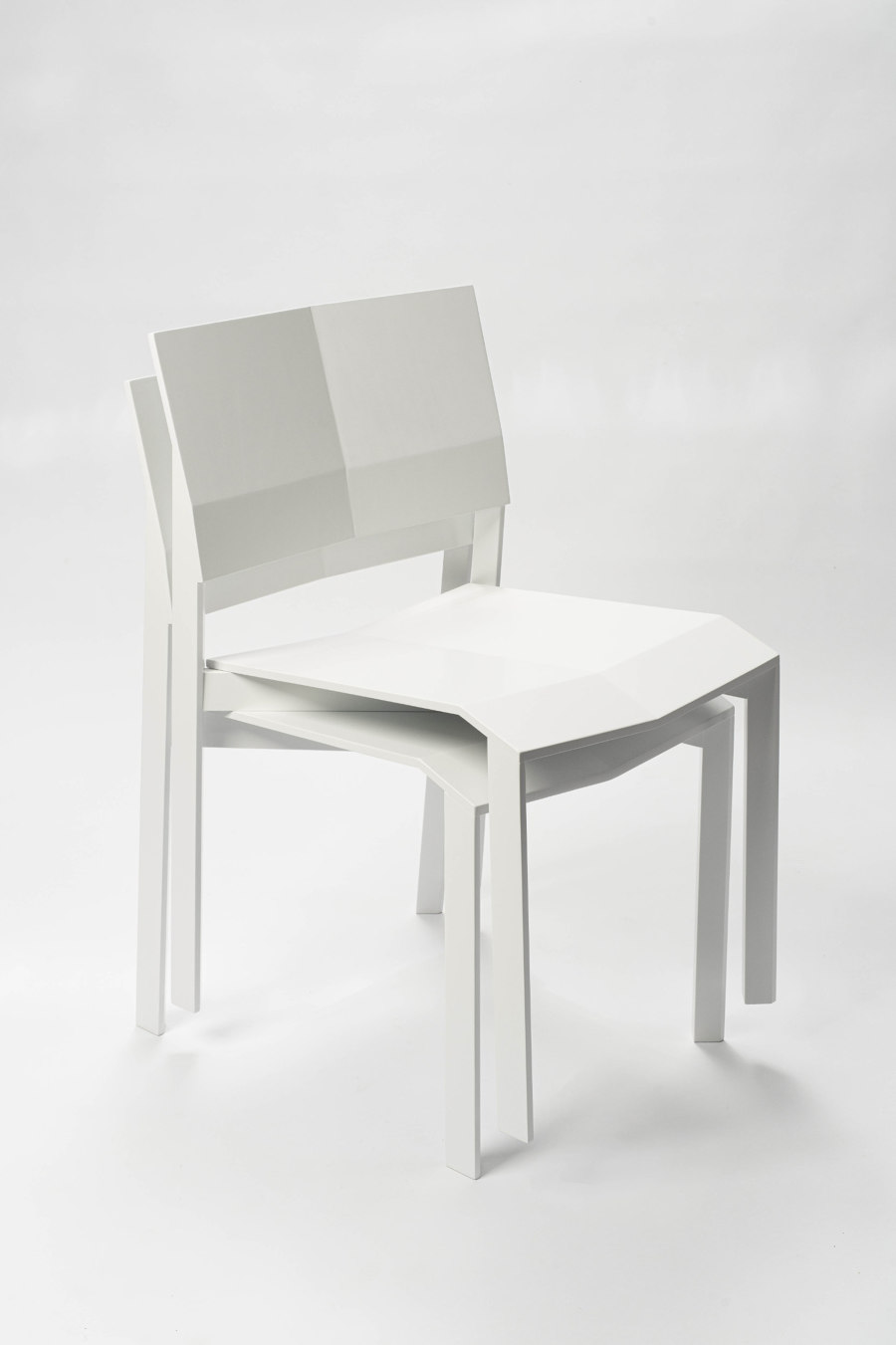
Top: The sustainable, modular Match sofa by Máté Horváth made by Varkoly Fiai. Above: The stackable, pared-down Tile chair designed by Dániel Lakos of Planbureau and manufactured by Balaton Bútor
×Horváth also joined forces with furniture maker Varkoly Fiai to create the Match sofa family whose simplicity is deceptive since it’s highly flexible: its modular units in different sizes allow for a variety of formations. It is upholstered in a fabric made of recycled PET bottles, while its cushions are filled with foam waste generated during the production process.
Designer Dániel Lakos of Budapest-based studio Planbureau and manufacturer Balaton Bútor have co-created the elegantly pared-down Tiles chair. Although understated, it is characterful thanks to the subtly angled planes, redolent of folded paper, that form its slender seat and backrest.
Top: the opulent Berri pendant designed by POSITION Collective and realised by Úri Lux. Above: designer Miklós Leits and Micro-Licht Lighting Studio’s striking Hommage lighting
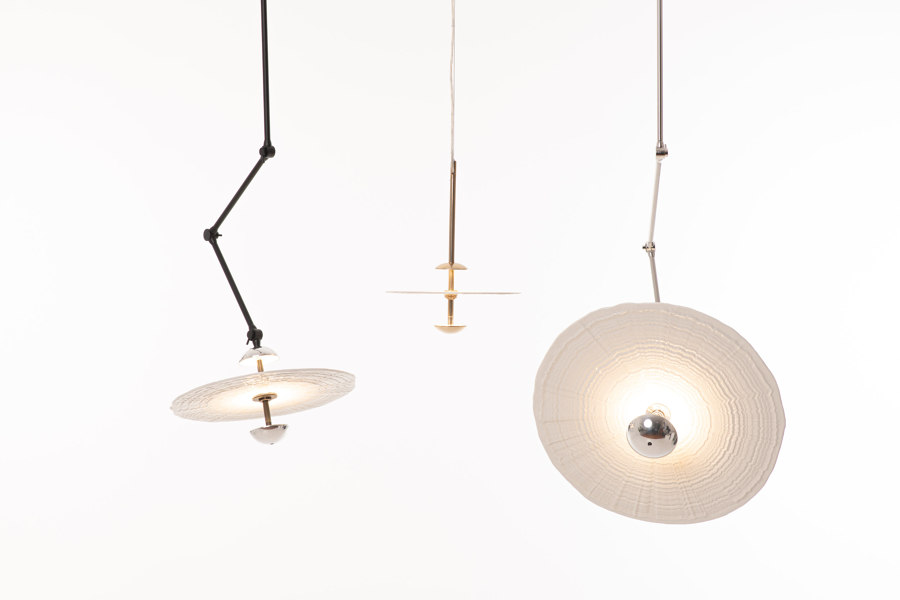
Top: the opulent Berri pendant designed by POSITION Collective and realised by Úri Lux. Above: designer Miklós Leits and Micro-Licht Lighting Studio’s striking Hommage lighting
×On the lighting front, there is the Hommage lamp family developed by lighting and interior designer Miklós Leits and Micro-Licht Lighting Studio. This dramatic design blends an industrial aesthetic in the form of large glass discs used for floodlighting with a hand-crafted one – opulent porcelain glazes coat the discs.
Another lighting design is the six-piece Berri collection devised by duo Attila Kertész and Bence Simonfalvi of POSITION Collective and Úri Lux. This decorative pendant light, studded with glass orbs, is inspired by the snowberry shrub and its berries. Like jewellery, it features refined details – wood, glowing metal, and glass pigments.
The Pet Flat in three tones, a state-of-the-art kennel designed by István Ulmann and manufactured by Tilia 2002
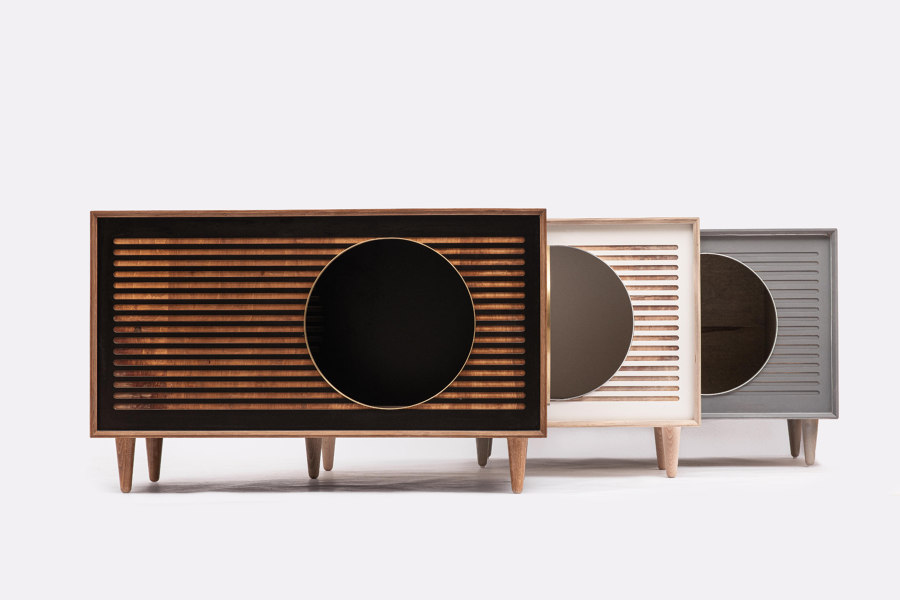
The Pet Flat in three tones, a state-of-the-art kennel designed by István Ulmann and manufactured by Tilia 2002
×Finally, dog lovers will marvel at the Pet Flat – a sustainable, smart kennel boasting solar panels that generate electricity for lighting, activated by a sensor, and internal and external cameras so that owners can check up on their dogs, remotely. It also has a sliding panel providing natural ventilation. It’s the brainwave of designer and architect István Ulmann and manufacturer Tilia 2002.
In Paris, these designs will provide a revealing snapshot of contemporary Hungarian design and have the edge over new work presented as prototypes as they’re fully functional pieces, available for purchase by architects and interior designers. As Bata-Jakab puts it, ‘An important criterion for HFDA are design products suitable for mass-production. This also gives manufacturers and designers commercial stability.’
Overall, this Franco-Hungarian collaboration is a timely reminder that Hungary stands out in Central Europe as a pioneer of cutting-edge design.
The works of the talented Hungarian designers will be showcased at 360 Design Budapest between 4 and 10 October at Bálna Budapest.
© Architonic


